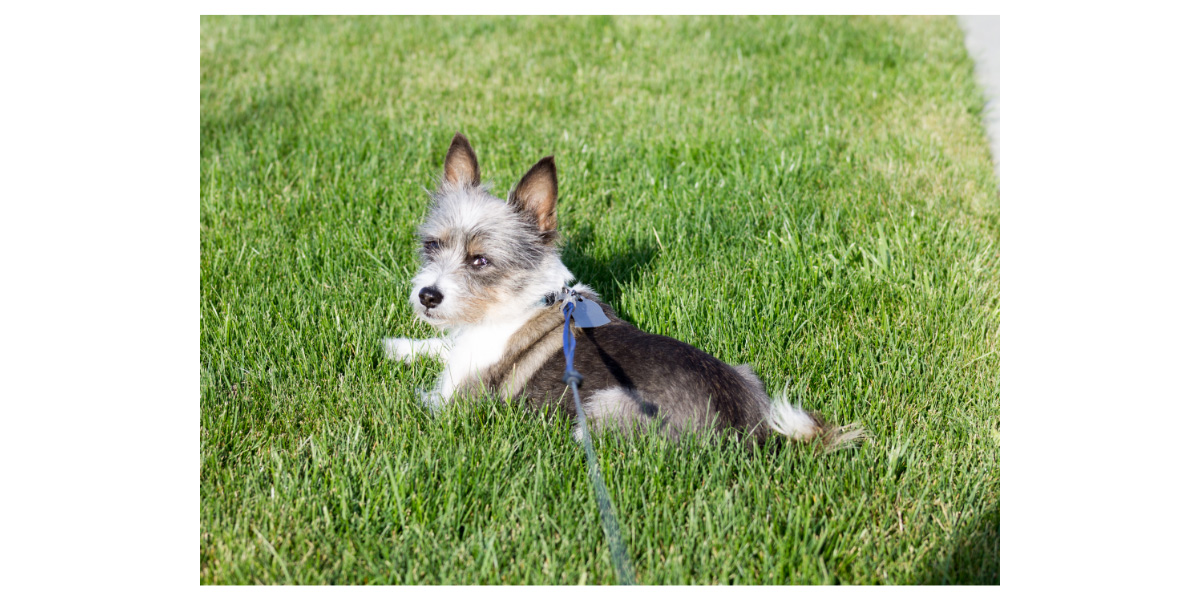
SAVE AN EXTRA $5 - $20 OFFUse code PETS in cart (Exclusions apply)

Save 40% with first AutoShipUse code NEW40 (Up to $40 max. Exclusions apply)

While efforts are made to answer all questions as quickly as possible, if an immediate answer is required or if your pet is in need of urgent or emergency care, contact your pet's veterinarian immediately.

You will receive an answer from Dr. Lindsay and our vet/tech team as soon as possible, usually the same day.
All answers are provided for informational or educational purposes only, and are intended to be a supplement to, and not a substitute for, the expertise and professional judgment of your pet's veterinarian.
It may be necessary to consult your pet's veterinarian regarding the applicability of any opinions or recommendations with respect to your pet's symptoms or medical condition.
Close
An error has occurred, please reload the page and try again.
Close
While efforts are made to answer all questions as quickly as possible, if an immediate answer is required or if your pet is in need of urgent or emergency care, contact your pet's veterinarian immediately.
There is no answer related to your question

It’s finally your dog’s favorite time of year, but this summer, they’re donning that well-earned silver muzzle. Unfortunately, senior dogs are at greater risk for heat exhaustion and heat stroke, even if they still don’t seem to mind running around under the sun. Here’s what you should know to help you enjoy a safe summer with your summer-loving senior.
The summer heat can be dangerous for even young dogs. Dogs regulate their body temperature in three ways: by panting, through vasodilation, and through sweating.
Panting is your dog’s primary way of keeping cool. By breathing rapidly with their tongue hanging out, they can allow moisture to evaporate through their mouth. It’s not efficient, but since they can only sweat through their paws, it’s their best defense against the heat.
Like humans, dogs also maintain their body temperature in the heat through vasodilation. This is when your blood vessels widen and circulate blood from the warm core of the body to just under the surface of the skin so the heat can dissipate. This is why people tend to look flushed when they’re overheated, and it’s also why animals native to hot climates have big ears and a long tail. Think Chihuahuas, with their wide, blood-vessel mapped ears - perfect for Central America heatwaves.
All breeds, even those that originate in hot climates, eventually have a harder time tolerating extreme temperatures as they get older. With age, the circulatory system becomes less efficient. The blood vessels can no longer dilate as quickly in response to heat. In cold weather, they similarly have trouble with vasoconstriction, when the blood vessels narrow to prevent heat loss.
Every dog’s heat tolerance is different. Small dogs generally handle heat better because they have a higher ratio of surface area to volume, meaning that inch for inch, they have more skin through which heat can escape. Your dog’s coat length and thickness also factor into how hot will be too hot for them.
Signs that your senior dog needs to cool down include:
Needless to say, you’ll want to avoid keeping your senior dog outside in the middle of the day when it’s hot out. Even in milder weather, though, your dog could overheat if they’re exercising and not taking enough breaks or drinking enough water.
Make sure your dog always has access to shade, where it can be around 10-15 degrees cooler. You also can set up a Cool Bed that’s filled with water to help your dog stay cool indoors or out.
If you need to cool down your dog fast, soak a cloth in cool water and apply it to their armpits or thighs, where the fur is thinner and there’s a high concentration of blood vessels.
Contrary to popular belief, ice cubes and ice water are safe for dogs and great for beating the heat. Just don’t let your dog drink water too quickly, as this is what can cause Gastric Dilatation and Volvulus (GDV) or bloat.
A short haircut can help some senior dogs stay cool in the heat. Single-coated dogs like the Maltese, Poodle, Yorkie, and Pomeranian who normally see their groomer can ask for a shorter cut for the summer.
Dogs with a double-coated breed like the Retriever, Husky, Pomeranian, and German Shepherd may be advised to not have their fur shaved. Shaving double-coated breeds is a controversial topic amongst groomers. Some feel that the long double coat acts as insulation and traps cool air close to the skin, similar to how people who live in deserts wear long, billowy garments.
Some people are fine with shaving a double-coated breed and, anecdotally, may find that their dog is more active and seems happier with a short haircut for the summer. The coat will take a while to grow out as shaving disrupts the hair’s growth cycle, but it will not be forever ruined. So, it’s up to you whether you’d like to try shaving your dog. You also have the option of having your groomer de-shed their coat to help it feel more lightweight, and they could also trim the fur around the legs and belly if you’re not comfortable with a full shave.
 Swipe
Swipe